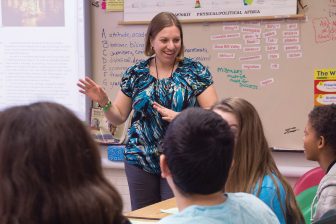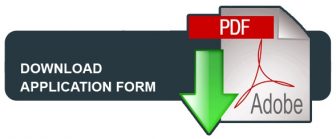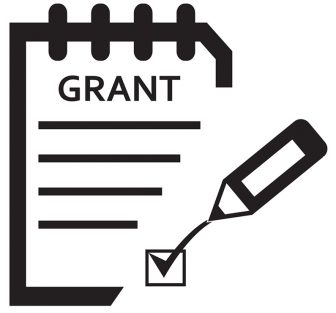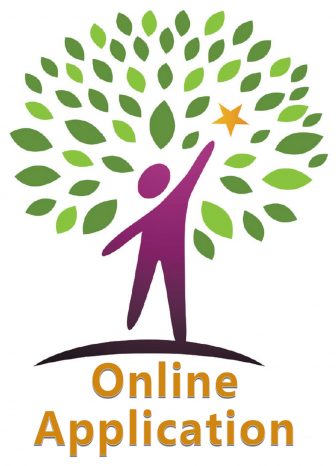Educator Standards Board
The Educator Standards Board is responsible for:
- Creating teacher and principal standards, and professional development standards
- Creating standards for license renewal
- Collaborating with colleges and universities to align teacher prep programs with standards
- Defining master teachers
- Monitoring compliance with teacher and principal standards;
- Researching policies on the profession of teaching and school administration
- Working with the Department of Education to develop a proposal for a career ladder program
- Recommending policies to lose achievement gaps among groups of students
- Creating standards for treasurers and business managers
- Creating standards for superintendents
- Developing model teacher and principal evaluation systems
- Determining a method for measuring student growth
The State Board is required to appoint ten teachers from public schools, one teacher from a chartered nonpublic school, five school administrators, one school board member, one parent representative and three representatives from higher education to the new board.
The nominations for the Educator Standards Board came from teachers’ unions, higher education, and educational associations that represent teachers, administrators, parents and school board members. Membership on this board is voluntary.
The Educator Standards Board can be found online at http://esb.ode.state.oh.us/
ESSA Fact Sheet
 For 14 long years, students and educators have lived under the deeply flawed No Child Left Behind (NCLB) Act. The Every Student Succeeds Act (ESSA) returns decision making for our nation’s education back where it belongs — in the hands of local educators, parents, and communities — while keeping the focus on students most in need.
For 14 long years, students and educators have lived under the deeply flawed No Child Left Behind (NCLB) Act. The Every Student Succeeds Act (ESSA) returns decision making for our nation’s education back where it belongs — in the hands of local educators, parents, and communities — while keeping the focus on students most in need.
Summary of ESSA Workgroup Collaborative Items
Statement of Purpose
Education organizations and stakeholders across Ohio embrace the opportunities provided within the Every Student Succeeds Act (ESSA) to set forth a vision of high-quality education in Ohio. Our group of education stakeholder organizations has identified five key areas that must be improved to ensure a better learning environment for students. Embedded within these opportunities is an emphasis on providing all students the support and resources needed to succeed in school and prepare them for college or careers.
Early Childhood
- Focus on early literacy and childhood education — providing needed support to students in their earliest years of learning rather than intensive interventions later in their educational career.
- Equity in resources serving our neediest learners in order to improve services to children and their families.
- Coordination among Head Start, early childhood initiatives (Birth-Age 8), and Title funding. Using best practices and educator professional development on the academic, social, and emotional needs of learners to ensure educational opportunities for the whole child.
ESSA provides for Professional Development Grants through a competitive Preschool Development Grant. These grants provide funding to states to promote coordination and collaboration between existing early childhood programs and systems to improve the access to quality programs for low income and disadvantaged children. ESSA authorizes a new $250 million early childhood education program. Whether or not Ohio is a recipient of these funds, the fact that these funds are being provided within ESSA demonstrates the need for quality programs with a focus on interventions, support, and equity for our youngest learners.
Assessments
- Identify and articulate the purpose and use of state mandated assessments. Assessments should be communicated in a language that is easily understood by families, educators, and other education stakeholders. This would include a description and purpose of each assessment, valid uses of the data, and a clear explanation of the results.
- Audit the current assessments utilized for Ohio’s accountability and explore alternative methods of assessment in order to assess students in the least invasive way possible. The amount of time spent on state mandated testing should be further reduced to absolute minimums in order to provide more time for learning and local formative assessment.
- Apply the 1% limit on alternative assessment for students with significant cognitive disabilities on a statewide basis, as opposed to being applied at the district or school level.
- Establish a period of stability for tests and testing windows. Provide timely feedback to allow for the testing data to be used to inform instruction and enhance student learning.
- Utilize test data for the purposes identified by the selected assessment to ensure validity. Assessment results should not be utilized in making high-stakes decisions concerning students, staff, or schools. The impact of student growth/test scores on educator evaluation and school effectiveness should be eliminated.
ESSA provides the opportunity to further reduce the amount of standardized testing. It decouples testing and high-stakes decision making for students and educators. It further allows states to set a cap limiting the amount of time students spend taking annual standardized assessments. The SMART Act provides funding for states to audit and streamline assessments, and eliminate those that are duplicative. Reducing the amount of time spent on testing results in more time for teaching and learning to take place in the classroom.
Accountability/State Report Card/School Improvement
- Focus on the purpose of Ohio’s Report Card including what is being reported as well as how the results are reported and interpreted within the community.
- Develop an easily understood guide for community members to be able to make sense of the data being reported about their schools/districts.
- Simplify the state report card, while allowing for a district’s unique circumstances (such as poverty level) which can be identified within a non-academic indicator as provided for in ESSA.
- Provide an opportunity for schools and districts to add explanatory comments to the report card in order to provide additional context to the community.
- Identify those schools needing comprehensive supports and interventions for lowest performing schools based on “what works,” including evidence-based interventions and resource equity. The development of any intervention strategies should allow for local decision making in the school improvement process.
ESSA gives states discretion to choose at least one school quality and student success indicators within two parameters: the indicators must (1) allow for meaningful differentiation in school performance; and (2) be valid, reliable, comparable, and statewide. Additionally, ESSA provides five examples of indicators and then adds that the state may use “any other indicator the state chooses that meets the requirements of the school quality and success clause”. ESSA allows for more than one non-academic indicator. Any selected indicator(s) must be applied across the state.
Of note, the four academic indicators in the aggregate must have greater weight than the 5th non-academic indicator (school success/student support). Discussions around the non-academic indicators of school success or student support allowed within ESSA can provide schools and districts an opportunity to tell their story and focus on the varied educational supports/opportunities that are provided for all students through a well-rounded curriculum but are not reflected in the academic indicators.
Family Engagement
- Provide equity of resources for “special families” – special education, English Language Learners, military families, and socioeconomic status throughout the state. These needs are large and evolving as the student population of Ohio continues to diversify.
- Invest more than 1% of Title I funding for family engagement. A key component in family engagement is providing for supportive professional learning on effective family engagement practices for teachers and school leaders.
- Use clear, consistent language with communities and families to develop stronger connections and school/family partnerships that endure.
ESSA authorizes Statewide Family Engagement Centers to support and provide comprehensive training on parent education and family-school partnerships. Multiple provisions in ESSA ensure that every student has access to a high quality education, regardless of zip code, and that strategies to engage families and communities are central to school improvement efforts. ESSA includes provisions for the Community Support for School Success program, which provides grants for Full-Service Community Schools. A focus on families and communities prepares all stakeholders to truly partner in student-focused programs and supports when education, accountability, interventions, and successes are shared. Collaborative partnerships should focus on valid programs and supports for students with a shared sense of accountability and success.
Educator Capacity
- Promote professional learning that provides time to collaborate, work with data to make informed decisions, and be involved in guiding the instructional decisions.
- Decouple assessments from educator evaluations (teacher and principal) in order to emphasize educator performance and growth.
- Adjust OTES and OPES to drive professional growth rather than serve as compliance checklists.
Consider the interwoven relationship between educator capacity and other key decisions within ESSA. ESSA provides that Title II grant funding continues to be used to increase student achievement while increasing quality and access to effective teachers, principals, and other school leaders. Title II also ends federally mandated evaluations. States will be allowed to develop, improve, and implement educator evaluation systems, so long as they consult with stakeholders including educators, paraprofessionals, and their unions. ESSA makes resources available to states that could be used to develop or strengthen educator induction and mentoring programs. This is of particular importance given recent polls that show that fewer college bound students are electing to go into the education profession. Further, ESSA allows district funds to be used to enhance collaboration and teacher-led professional development aligned with students’ learning needs. Quality professional learning opportunities support growth in educator learning which in turn impacts student learning.
Collaborative Educator Stakeholder Organizations:
- Buckeye Association of School Administrators
- Ohio Association of Elementary School Administrators
- Ohio Association of School Business Officials
- Ohio Association of Secondary School Administrators
- Ohio Education Association
- Ohio Federation of Teachers
- Ohio Parent Teacher Association
- Ohio School Boards Association
For more information, visit NEA’s ESSA site, getessaright.org.
Master Teacher Program
- The Master Teacher Program was developed by the Ohio Educator Standards Board (ESB) in response to Senate Bill 2 which created the ESB and mandated that they create a definition for “master teacher” and the criteria being designated a master teacher.
- The Master Teacher Program is aligned with both the Ohio Standards for the Teaching Profession and the Ohio Standards for Professional Development .
- The Master Teacher Program is designed to work as part of the Career Ladder (Lattice) Program also mandated by SB 2, which is a “performance-based multilevel system of teaching positions or compensation levels within a school district or district building.”
- Master Teacher designation is required for the Senior Professional Educator License and one of the pathways to the Lead Professional Educator License.
The ESB has created processes and procedures for districts to use to implement the Master Teacher Program .
Districts are required to:
- Assemble a Master Teacher Committee of at least five total members (majority teachers) to review and score Master Teacher applications . OEA encourages locals NOT to use the LPDC for this purpose and to keep these two committee functions separate;
- Establish local formatting, assembling and submitting requirements;
- Educator all teachers about the requirements, processes and procedures for the Master Teacher Program.
Note: The work of the Master Teacher Committee is subject to the Open Meetings Act/Sunshine Law.
All Master Teacher Program documents are available online at the ODE Website.
For more information, visit ODE’s Master Teacher Program page: http://education.ohio.gov/Topics/Teaching/Professional-Development/Master-Teacher
For members only: OEA’s Contract Language Development Guide for Master Teacher
Licensure and Renewal Information
Ohio offers several different types of licenses for educators including a Resident Educator 4-year License, a 5-year Professional License and Substitute License. Information regarding Teacher Licensure and Certification in Ohio can be found by accessing the Ohio Department of Education links below:
If you are applying for Initial Licensure: http://education.ohio.gov/Topics/Teaching/Licensure/Apply-for-Certificate-License
If you are applying for Licensure Renewal: http://education.ohio.gov/Topics/Teaching/Licensure/Renew-Certificate-License
For an overview of Teacher Licenses in Ohio:
http://education.ohio.gov/Topics/Teaching/Licensure/Apply-for-Certificate-Licens
How to Get Free Classroom Supplies
Rather than reaching deeper into your own pockets, Tamar Snyder at Edutopia suggests following these tips for getting free supplies:
Don’t Buy What’s Free
Look into these strategies for obtaining free materials:
- Recycling. Jennifer Volpe, a speech pathologist at Cobble Hill High School, in Brooklyn, New York, recommends a nonprofit recycling site called Freecycle, where people from all over the world post books, CDs, electronics, and toys they’re giving away. “The only catch is that you have to arrange to pick up the items,” says Volpe.
- Free shopping spree. Teachers at schools in which at least 60 percent of students qualify for free lunch can take part in a monthly shopping spree at resource centers such as A Gift for Teaching, in Orlando, Florida, which gets many of its new supplies donated as surplus from businesses.
- Try a Facebook Group. Join a Facebook Group for your community/region and post a request for the supplies you need.
Put Your Classroom Up For Adoption
Adopt-A-Classroom offers a free, safe online e-wallet account to educators who want to solicit financial support from the community. Teachers can use the money to purchase books, games, and other educational supplies through the online vendors associated with the site.
To sign up, log on to the site, register your classroom, and describe what kinds of supplies you’d like to buy. Then let parents and local businesses know that they can “adopt” your classroom for as little as $25.
Go For The Big Score
OfficeMax, in partnership with Adopt-A-Classroom, hosts the annual A Day Made Better event in October. Last year, the office superstore sent 1,300 teachers each a large box of classroom-supply staples that included scissors, glue sticks, pencils, pens, notebooks, tissues, and even a digital camera.
Teachers who’d like to be considered for A Day Made Better 2009 should have a school principal or fellow teacher nominate them at the official site.
Raise Funds For Supplies
Neeta Garg, owner of the Kumon Math and Reading Center in Allentown, Pennsylvania, wanted to help local teachers. So last summer, she organized a school-supplies drive. She sent flyers and emails to parents, and her daughter posted the event on Facebook. In addition to hundreds of donated pencils and notebooks, she collected gloves, coats, and backpacks — all of which she donated to area public schools.
And at Wilmot Elementary School, in Deerfield, Illinois, parent-teacher organization (PTO) fundraisers pay for a lot of supplies. Teachers fill out wish lists of the classroom supplies they’d like, from pencil sharpeners to cooking utensils. The PTO organizes fundraisers throughout the year, including a Market Day, when students and their families can order food from a catalog once a month.
Start A Gift Registry
Gift registries aren’t just for weddings anymore. At DonorsChoose, public school teachers can post online requests for equipment and supplies. Supply Our Schools allows teachers in low-income school districts to register for classroom supplies. Gold Star Registry is yet another site that encourages parents, PTAs, and other community-support organizations to make similar types of donations.
Seek Out A Matchmaker
San Diego businessman Jerry Hall founded iLoveSchools.com to match donors with teachers seeking new or gently used equipment and supplies for their classrooms. Tens of thousands of teachers have signed up, and many have received gifts such as computers and art supplies — even a saxophone with sheet music.
Sell Advertising Space
Tom Farber, an Advanced Placement calculus teacher at San Diego’s Rancho Bernardo High School, made headlines when he asked parents and local businesses to sponsor his exams. “I knew that I had to do something,” said Farber, explaining that if he gave one quiz per chapter to each of his 167 students, he’d spend more than $500 (roughly $3 a student) on photocopies alone.
So Farber began selling a small amount of space at the bottom of each exam. He charges $10 per quiz, $20 for tests, and $30 per final. Most sponsors use motivational quotes, such as this gem: “A man has made at least a start on discovering the meaning of human life when he plants trees under which he full well knows he will never sit.”
To date, Farber has raised more than $625 — enough to cover a year’s worth of photocopies.
NEA-Retired Jack Kinnaman Memorial Scholarship
 The NEA-Retired Jack Kinnaman Memorial Scholarship is to offset the tuition of a NEA student member, the amount has greatly increased to five scholarships of $3,500 each.
The NEA-Retired Jack Kinnaman Memorial Scholarship is to offset the tuition of a NEA student member, the amount has greatly increased to five scholarships of $3,500 each.
The NEA-Retired Jack Kinnaman Memorial Scholarship was created in memory of an education advocate and longtime NEA member, Jack Kinnaman, Vice President and former Advisory Council member of the NEA-Retired. Kinnaman is most fondly remembered as NEA’s “Cat in the Hat.”
Applicants must be a member of the NEA Student Program. Late and/or incomplete applications will not be considered. To be considered for this award, aspiring educators must submit an application and several letters of recommendation. The NEA-Retired Intergenerational Committee selects the winners, who are announced at the NEA-Retired Annual meeting. Applications are due on April 15, 2024. To submit an application click here.
Please read the NEA site for the deadline for current application and all relevant materials.
→ Back to the Scholarships, Grants & Awards Home Page
Revised January 22, 2024
OEA Secretary-Treasurer’s Fiscal Fitness Award
The OEA Secretary-Treasurer’s Fiscal Fitness Award recognizes Local Associations excelling in the implementation of financial best practices. (It is presented to winning Locals rather than to the individual treasurer of the locals.) The full criteria and how to participate is outlined HERE. Locals must submit materials for the 2023-2024 fiscal year award by January 31, 2025, to:
OEA Secretary-Treasurer
OEA Fiscal Fitness Award
225 East Broad Street
Columbus, OH 43215
If you have questions, or require additional guidance, please call Secretary-Treasurer Rob McFee at 614-227-3199
![]()
Have an Additional Question?
InfOEA is a one-stop point of contact providing phone and email assistance to all members, particularly local treasurers and other members with administrative responsibilities.
- Email: membership@ohea.org
- Call: 1-(844)-OEA-INFO or 1-(844)-632-4636 | Mon.-Fri., during traditional business hours
Additional Resources
![]()
→ Back to the Scholarships, Grants & Awards Home Page
Updated October 24, 2024
Affiliate Grants Program

The OEA Affiliate Grant Program was created to build strong and effective locals.
The Program makes grants available to all local OEA affiliates, whether a large local or a small local. To be eligible for a grant, the affiliate must provide a statement of how its program will strengthen the Association at the local, state, and/or national level. OEA Districts are not eligible.
There are four (4) types of grants available:
- One-Year Special Project Grant – available every year.
- Two-Year Special Project Grant – available every two (2) years only, must apply in a fiscal year beginning with an odd number. (e.g., 2023-2024 fiscal year application cycle)
- Effective Locals Grant – available every two (2) years only, must apply in fiscal year beginning with odd-numbered year. (e.g., 2023-2024 fiscal year application cycle)
- Release Time Grant – available every year, approval subject to NEA’s guidelines.
Click here to download a flier with additional program details and general grant requirements, or download a description of the different affiliate grants types. | Click the icon above or click here for an OEA Affiliate Grant Application
Applicants must apply using an application downloaded from the OEA website, or by request via email to Grants@ohea.org. Click here to download a timeline of the Affiliate Grant application process (Oct. 1, 2024, through midnight Jan. 31, 2025).
→ Back to the Scholarships, Grants & Awards Home Page
Updated: October 2, 2024
NEA Foundation Grants
 The NEA Foundation is a public charity founded by educators for educators to improve public education for all students.
The NEA Foundation is a public charity founded by educators for educators to improve public education for all students.
Throughout the year, the NEA Foundation awards over 150 grants to support educators’ efforts to close the achievement gaps, develop creative learning opportunities for students, and enhance their own professional development.
OEA encourages all eligible educational professionals to apply for these grants. There are two primary grant categories open to all public education professionals:
- Student Achievement
- Learning & Leadership
Student Achievement Grants: $5,000
These grants promote classroom innovation and engage students in critical thinking, inquiry, and self-direct learning that deepens knowledge of standards-based subject matter. Approximately 75 awards are announced annually.
Criteria / Proposed learning opportunity should:
- Include specific and measurable goals for student that are rigorous and aligned to state standards
- Include activities that engage students in critical thinking and problem solving
- Align goals, assessment, activities, and budget
Learning & Leadership Grants:
These grants support high-quality professional development opportunities, including, Summer Institutes, action research, collegial study, lesson study, and mentoring. Approximately 75 grants are award annually —$2,000 for individuals and $5,000 for groups.
Criteria /Proposed professional development should:
- Be directly related to a clear and compelling student need, based on data
- Include collegial sharing that is interactive and sustained over time
- Be likely to improve student achievement
- Include a budget that is appropriate to the project goals
Applying for Foundation Grants:
Applicants must be a practicing U.S. public school employee:
- PreK-12 teachers
- Education support professionals
- Higher education faculty and staff
As a grantee, you are expected to:
- Fully implement your proposed plan
- Complete a final report that includes a narrative of your project’s accomplishments and a financial report of expenditures
- Share any materials developed and press clippings collected
- Share your findings with colleagues and others
Applications are accepted throughout the year and are reviewed three times a year, beginning on February 1, June 1, and October 15. The NEA Foundation offers writing tips for grants on its website at www.neafoundation.org. The site also includes brief descriptions of past recipients’ work.
→ Back to the Scholarships, Grants & Awards Home Page
OEA Friend of Education Award

The Ohio Education Association Friend of Education Award recognizes a person and/or organization whose leadership, actions, and support have contributed to the improvement of public education on a statewide and/or national level. Past recipients include a U.S. Senator, U.S. Representatives, and a corporation.
Any member of the Ohio Education Association may nominate an individual or organization to receive this award. The OEA President, Vice President, and Secretary-Treasurer shall review the nomination(s) and supporting rationale.
Current members of the OEA Board of Directors and association staff members are not eligible for this scholarship. In addition, OEA Awards and Scholarship Committee Members are not eligible for two years after completion of service on the committee to apply or to be nominated.
The online nomination form must be completed in a single session, as you will not be able to save, and return to it at a later time without starting over. In addition it must be received on or before February 29, 2024. Late applications will not be considered. The OEA Awards and Scholarship Committee reserves the right to present no award or to refer an applicant to another award or scholarship.
TIP: Consider using this nomination worksheet as a guide prior to completing the online form. This guide can not be submitted in lieu of the online nomination form.
Please click here to see the rubric that the OEA Awards Committee will use to evaluate each submission.
→ Back to the Scholarships, Grants & Awards Home Page


